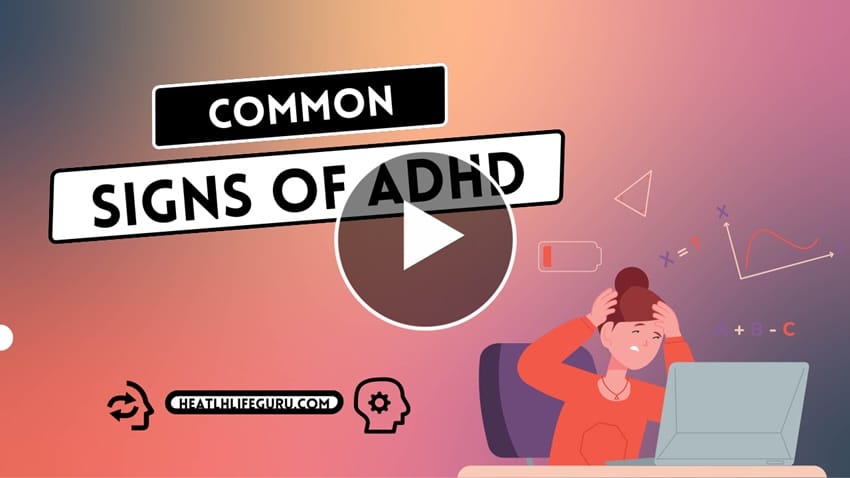Sugar, an ingredient found in countless foods and beverages, has woven itself deeply into the fabric of global diets. While it sweetens life’s many pleasures, its excessive consumption raises significant health concerns. This article delves into the bitter truth about sugar’s impact on health, tracing its historical consumption patterns, understanding its various forms, and exploring its role in obesity, dental health, diabetes, and heart disease. By shedding light on these critical aspects, readers will gain a comprehensive understanding of sugar’s effects, empowering them to make informed dietary choices.
Contents
- The Historical Context of Sugar Consumption
- Understanding Different Types of Sugar
- Sugar’s Role in Obesity and Weight Gain
- Sugar and Its Impact on Dental Health
- The Link Between Sugar and Diabetes
- Sugar’s Effect on Heart Health
- Sugar and Mental Health
- Hidden Sugars: The Dangers of Processed Foods
- The Bottom Line
- Related
The Historical Context of Sugar Consumption

Sugar’s journey from a rare luxury to a staple in diets worldwide is a tale of both fascination and concern. Initially a precious commodity, sugar was once the privilege of the wealthy, but the industrial revolution changed this, making it widely accessible. This shift led to a dramatic increase in sugar consumption, fundamentally altering diets globally. The 20th century saw sugar becoming an integral part of daily eating habits, often hidden in processed foods. Today, understanding this historical context is crucial in recognizing how sugar’s role in diets has evolved and its implications for health.
The industrialization of food production marked a turning point in sugar consumption. Mass production and marketing strategies significantly increased the availability and desirability of sugar-laden products. This era witnessed the introduction of high-fructose corn syrup, a cheaper alternative to traditional sugar, further boosting its presence in diets. The convenience of processed foods, coupled with their addictive taste, led to an unprecedented increase in sugar intake. This historical shift is essential to comprehend the current health challenges posed by sugar and sets the stage for a deeper exploration of its impact.
Understanding Different Types of Sugar

Sugar comes in various forms, each impacting health differently. Natural sugars, found in fruits and dairy, are accompanied by essential nutrients, whereas added sugars in processed foods lack nutritional value. Fructose, a natural sugar in fruits, and glucose, a simple sugar essential for bodily functions, are often misunderstood. Sucrose, commonly known as table sugar, is a combination of fructose and glucose and is the most prevalent form of added sugar. Understanding these differences is key to making healthier choices regarding sugar consumption.
The role of fructose, glucose, and sucrose in health is a topic of ongoing research and debate. Fructose, while natural, can have adverse effects when consumed in large quantities, particularly in the form of high-fructose corn syrup. Glucose, on the other hand, is vital for energy but can be harmful in excess, leading to weight gain and insulin resistance. Sucrose, being a combination of the two, poses similar risks when overconsumed. This understanding of sugar types is crucial for grasping their distinct impacts on health and the importance of moderation.
Sugar’s Role in Obesity and Weight Gain

Sugar is a key player in the global obesity epidemic. Its high caloric content, combined with its prevalence in diets, contributes significantly to weight gain. Consuming sugar in excess leads to a caloric surplus, which the body stores as fat. This process is exacerbated by sugar’s ability to stimulate appetite, often leading to overeating. The link between high sugar intake and increased body weight is clear, making it a critical factor in managing obesity.
The relationship between sugar consumption and obesity is further complicated by its impact on metabolism. Sugar disrupts the normal functioning of hormones like insulin, which regulates blood sugar levels and fat storage. This disruption can lead to insulin resistance, a precursor to obesity and various metabolic disorders. Studies have shown a strong correlation between sugary diets and increased body fat, particularly around the abdomen. Understanding this relationship is essential for anyone looking to maintain a healthy weight and reduce the risk of obesity-related health issues.
Sugar and Its Impact on Dental Health

The connection between sugar and dental health is well-established. When sugar is consumed, it interacts with bacteria in the mouth, leading to the production of acids. These acids erode tooth enamel, the hard outer layer of teeth, causing decay and cavities. Frequent consumption of sugary foods and drinks significantly increases the risk of dental problems, making sugar a primary concern for oral health.
Preventive measures against sugar-induced tooth decay are crucial. Regular brushing and flossing help remove sugar particles and plaque, reducing the risk of cavities. Additionally, limiting sugar intake, especially in sticky or chewy forms that cling to teeth, is vital. Dental professionals also emphasize the importance of regular check-ups to monitor and manage the impact of sugar on dental health.
The Link Between Sugar and Diabetes

Sugar plays a significant role in the development of diabetes, particularly Type 2. Excessive sugar intake leads to increased blood glucose levels, which, over time, can strain the body’s ability to manage insulin. This strain can evolve into insulin resistance, a hallmark of Type 2 Diabetes. The risk is especially high with the consumption of large amounts of added sugars found in processed foods and sugary drinks. Understanding this link is crucial for diabetes prevention and management.
The relationship between sugar consumption and diabetes is not just about quantity but also about the type of sugar and the overall diet. Foods high in added sugars often lack fiber and essential nutrients, contributing to rapid spikes in blood sugar levels. These spikes can overwork the pancreas, which produces insulin, leading to decreased efficiency or failure over time. Balanced diets that limit added sugars and include whole foods can help maintain healthy blood sugar levels. This approach is vital for reducing the risk of developing diabetes and managing it effectively if already diagnosed.
Sugar’s Effect on Heart Health

Excessive sugar intake is not only a risk factor for obesity and diabetes but also for heart disease. High sugar consumption can lead to increased levels of triglycerides, a type of fat found in the blood, which is a known risk factor for heart disease. Additionally, sugar can cause inflammation and high blood pressure, both of which are harmful to heart health. The impact of sugar on cholesterol levels is also significant, as it can increase harmful LDL cholesterol while decreasing beneficial HDL cholesterol. Understanding these effects is essential for maintaining a healthy heart.
The relationship between sugar and heart health is complex and multifaceted. Studies have shown that diets high in added sugars can lead to a greater risk of cardiovascular mortality. This risk is partly due to the indirect effects of sugar on heart health, such as contributing to obesity and diabetes, which are known risk factors for heart disease. Reducing sugar intake, particularly from processed foods and beverages, is a key strategy in promoting heart health. Adopting a diet low in added sugars and rich in whole foods can significantly benefit cardiovascular health.
Sugar and Mental Health

The impact of sugar on mental health is an area of growing research and concern. High-sugar diets have been linked to an increased risk of depression and anxiety. The rapid fluctuations in blood sugar levels caused by high sugar intake can affect mood and energy levels, leading to feelings of irritability and depression. Additionally, sugar can trigger inflammatory responses in the body, which have been associated with higher rates of depression. Understanding this connection is essential for maintaining both physical and mental well-being.
The concept of sugar addiction is another aspect of its impact on mental health. Sugar stimulates the release of dopamine, a neurotransmitter associated with pleasure and reward, in the brain. This effect can lead to a cycle of cravings and dependence, similar to addictive behaviors. The psychological effects of reducing sugar intake, such as withdrawal symptoms and mood changes, further support the idea of sugar addiction. Recognizing and addressing these mental health aspects is crucial for those looking to reduce their sugar consumption and improve overall health.
Hidden Sugars: The Dangers of Processed Foods

Hidden sugars in processed foods are a major health concern. Many products, even those not typically associated with sweetness, contain added sugars. These sugars contribute to overall sugar intake, often without consumers’ full awareness. The prevalence of hidden sugars makes it challenging to monitor and control sugar consumption, contributing to various health issues. Identifying and understanding these hidden sugars is essential for making healthier dietary choices.
Strategies for reducing the intake of hidden sugars are key to a healthier diet. Reading labels carefully to identify added sugars, even in unexpected products like breads, sauces, and condiments, is crucial. Opting for whole, unprocessed foods can significantly reduce the intake of hidden sugars. Educating oneself about the various names and forms of added sugars is also important, as sugar can be listed under numerous terms on ingredient labels. By being aware of and actively reducing hidden sugars, individuals can take a significant step towards better health and well-being.
The Bottom Line
The impact of sugar on health is profound and multifaceted, affecting everything from dental health to heart disease. This understanding calls for a proactive approach to dietary choices. Reducing sugar intake, particularly from processed foods, and embracing a balanced diet rich in whole foods are essential steps. It’s time to reassess your relationship with sugar, making informed decisions for long-term health benefits. Let’s take charge of our dietary habits and pave the way for a healthier, more vibrant future.


